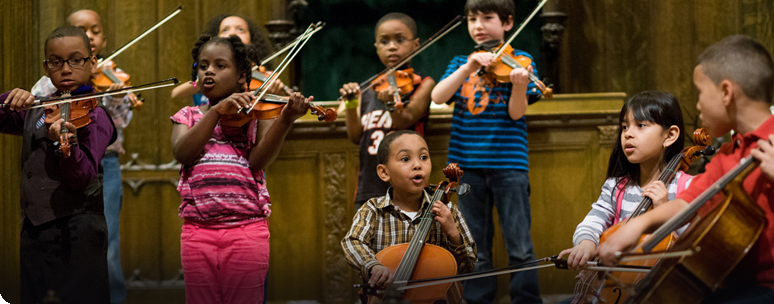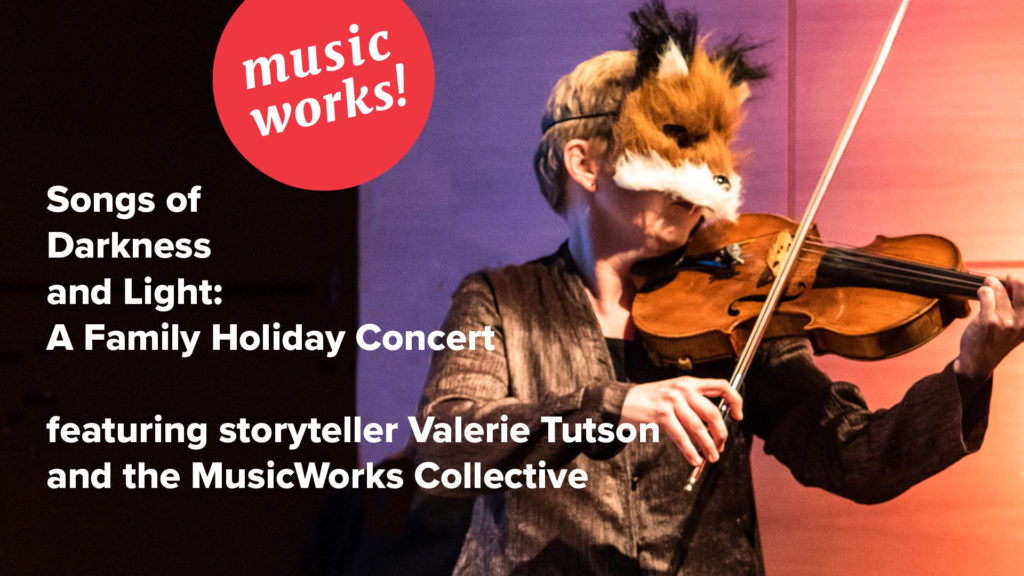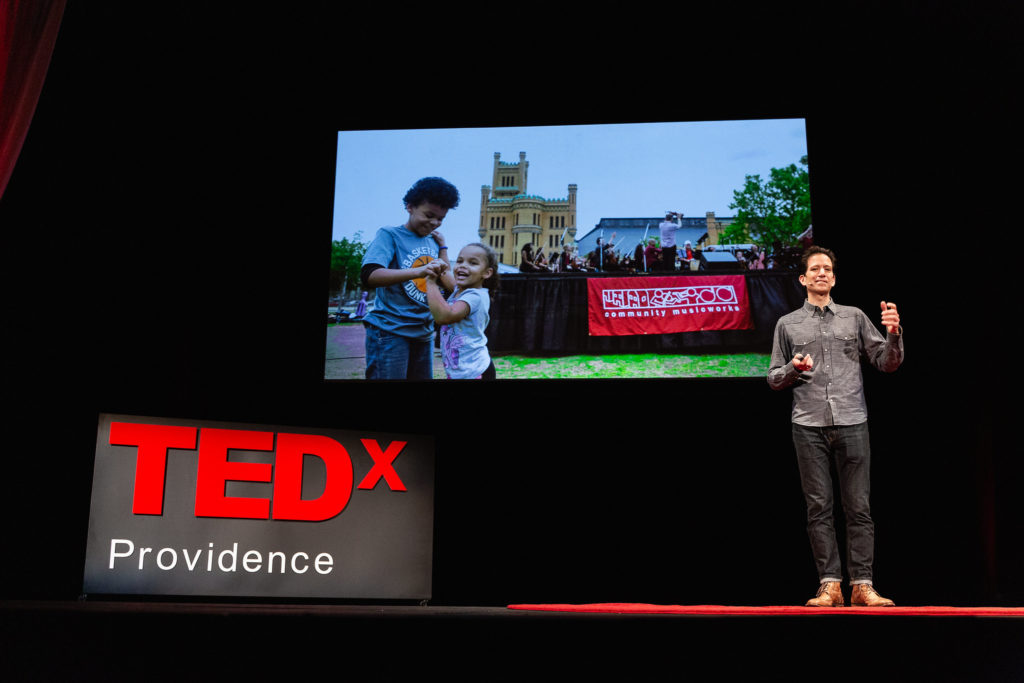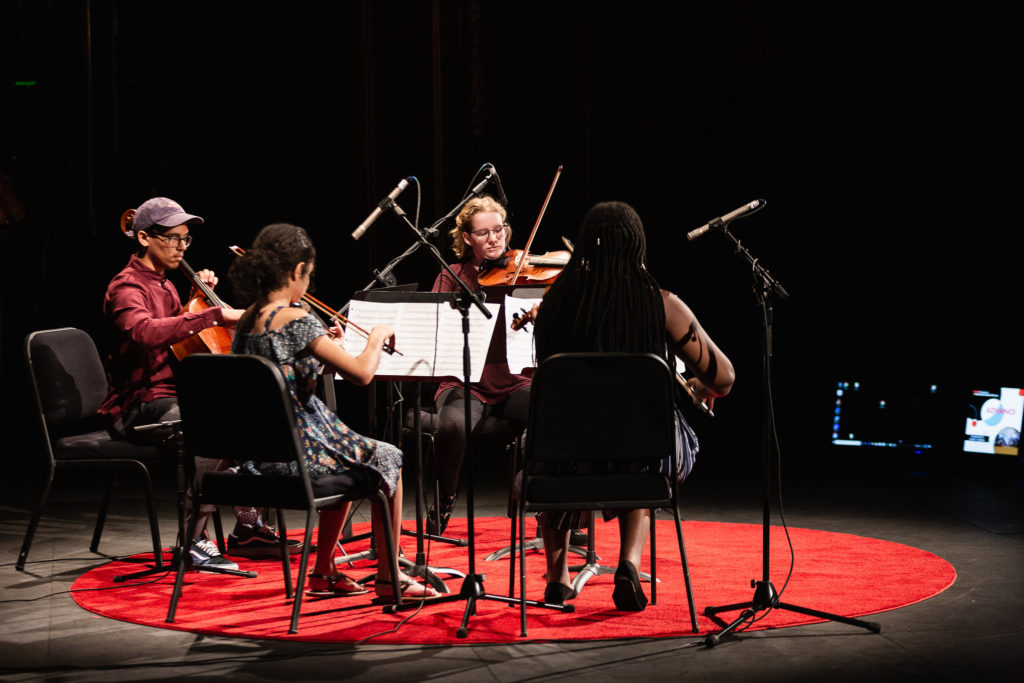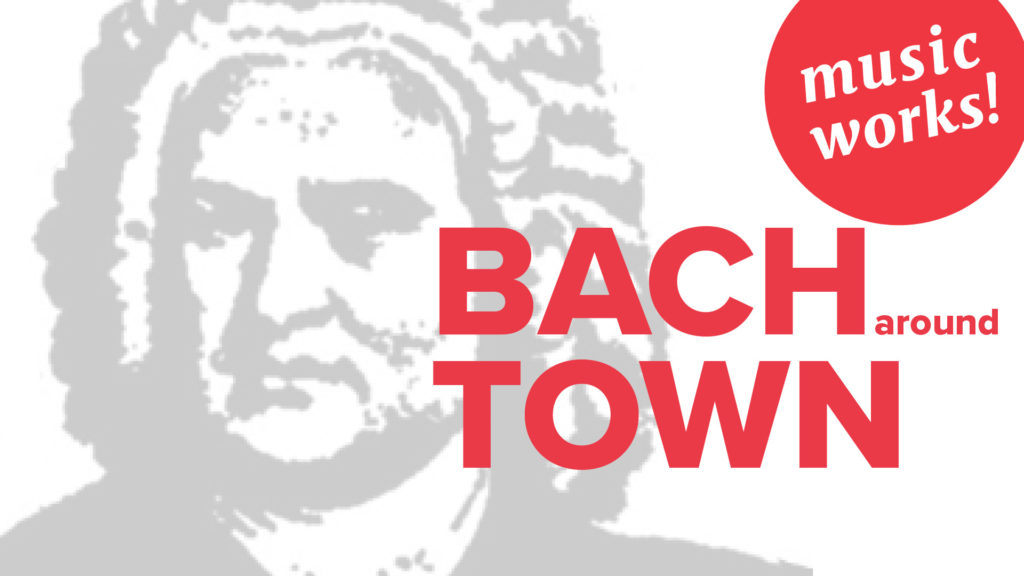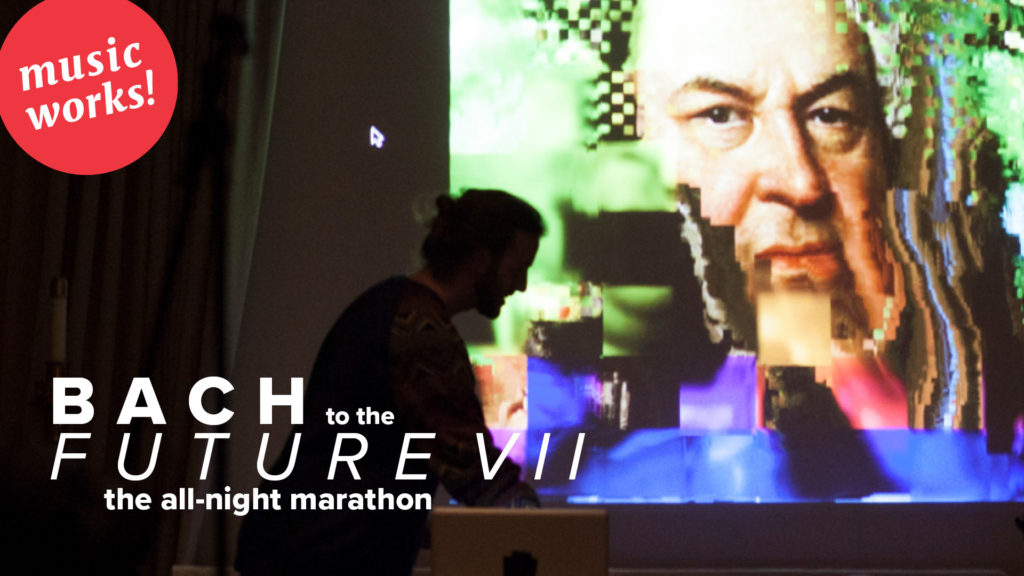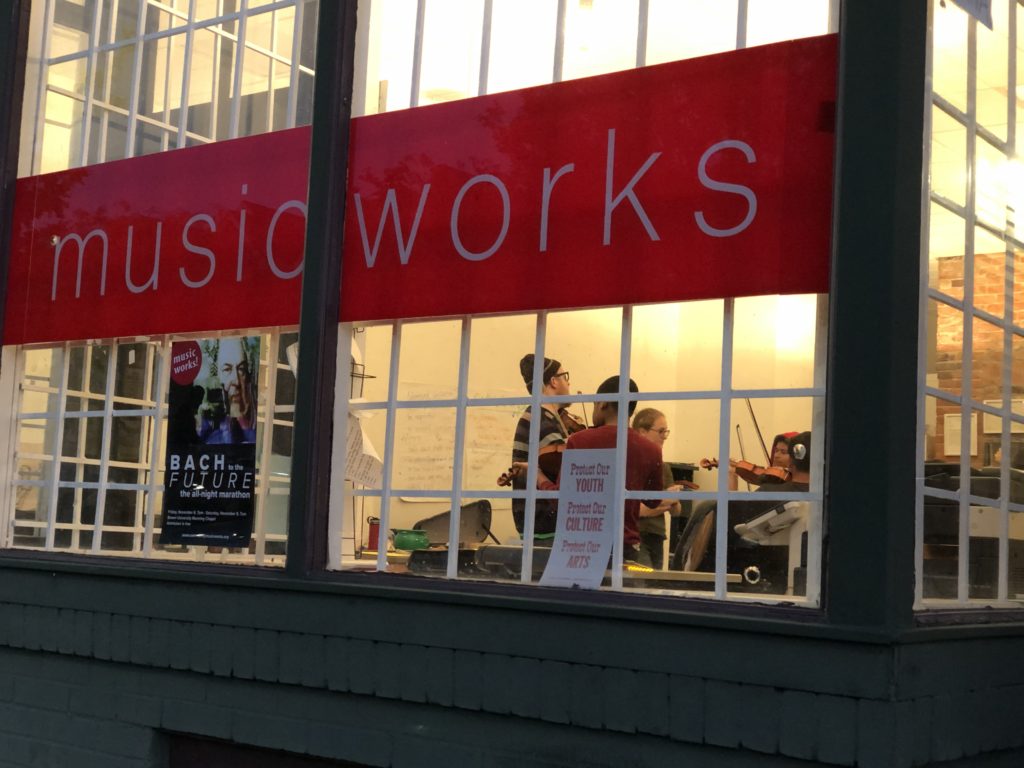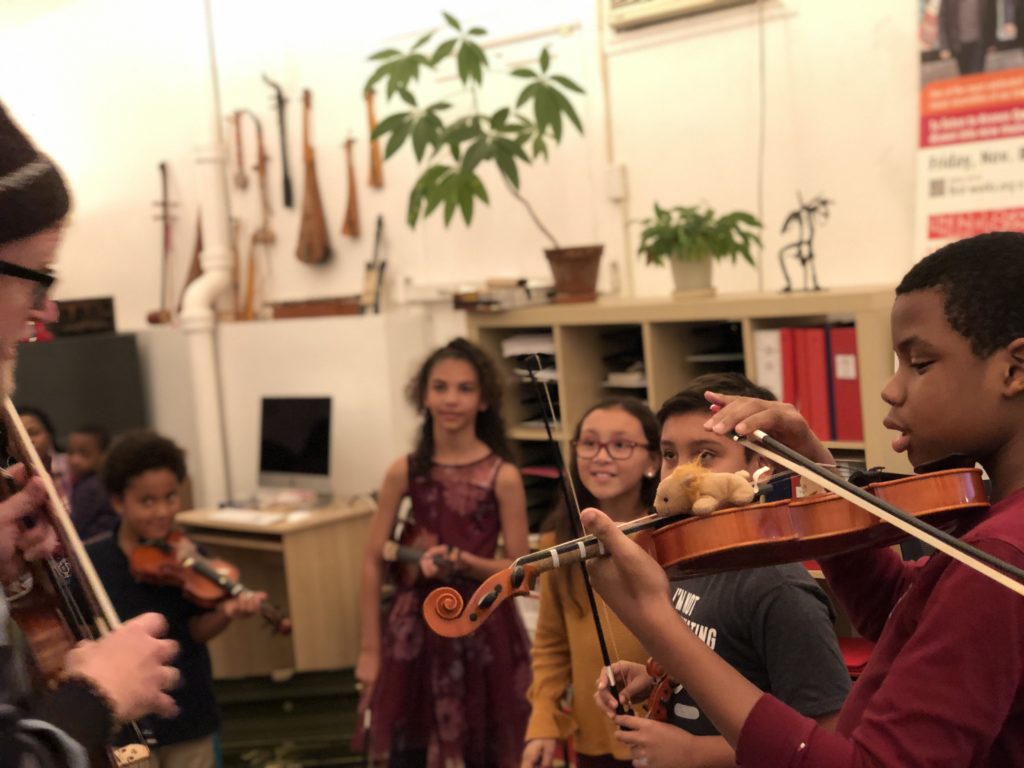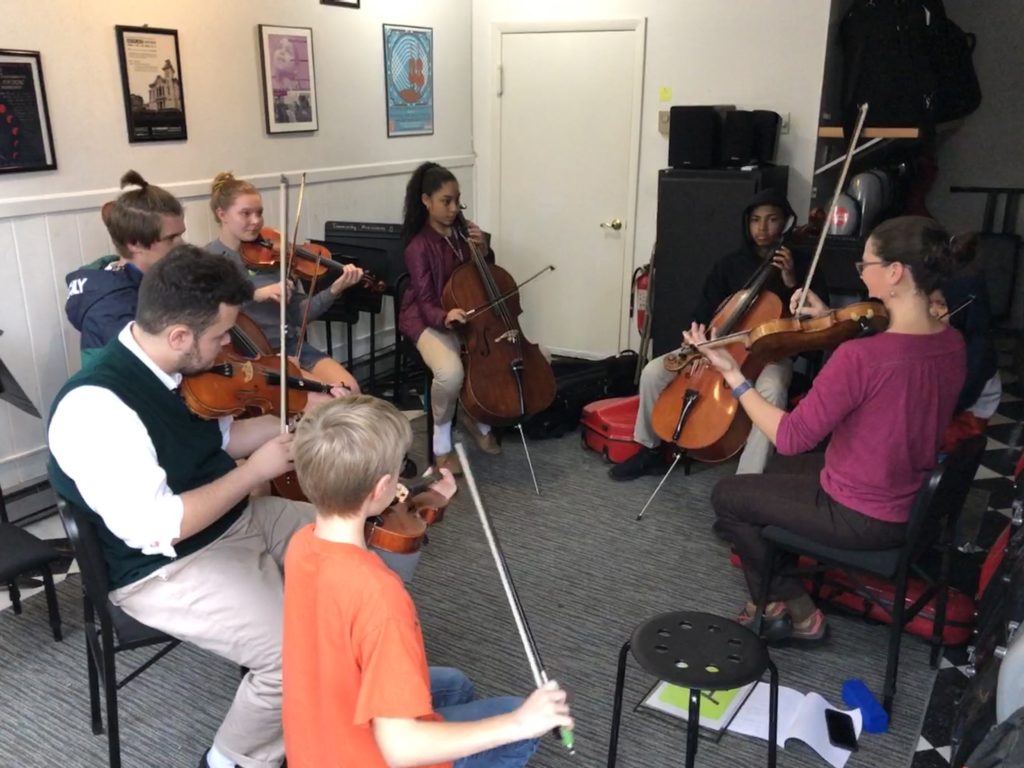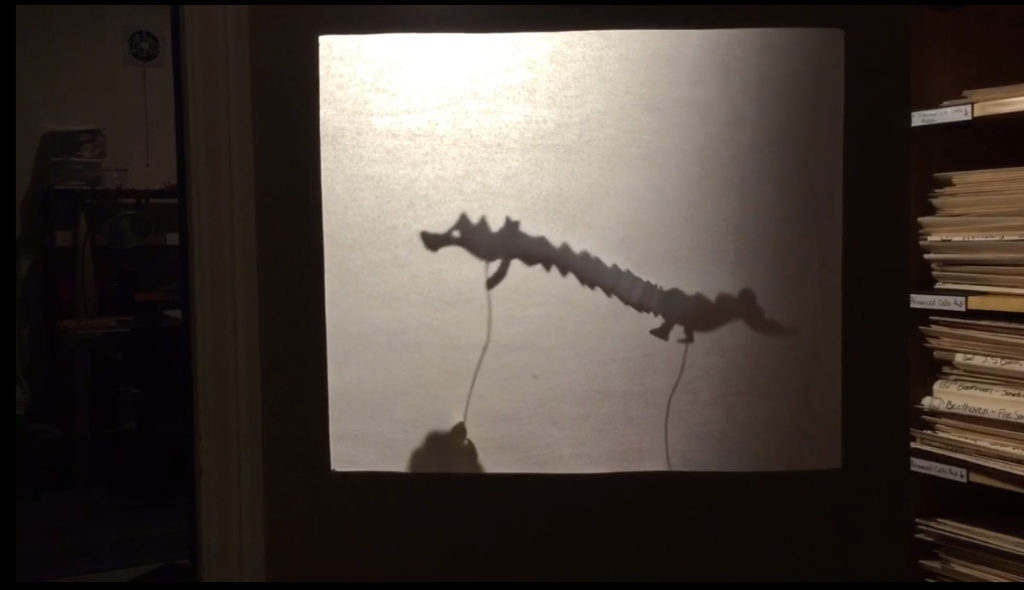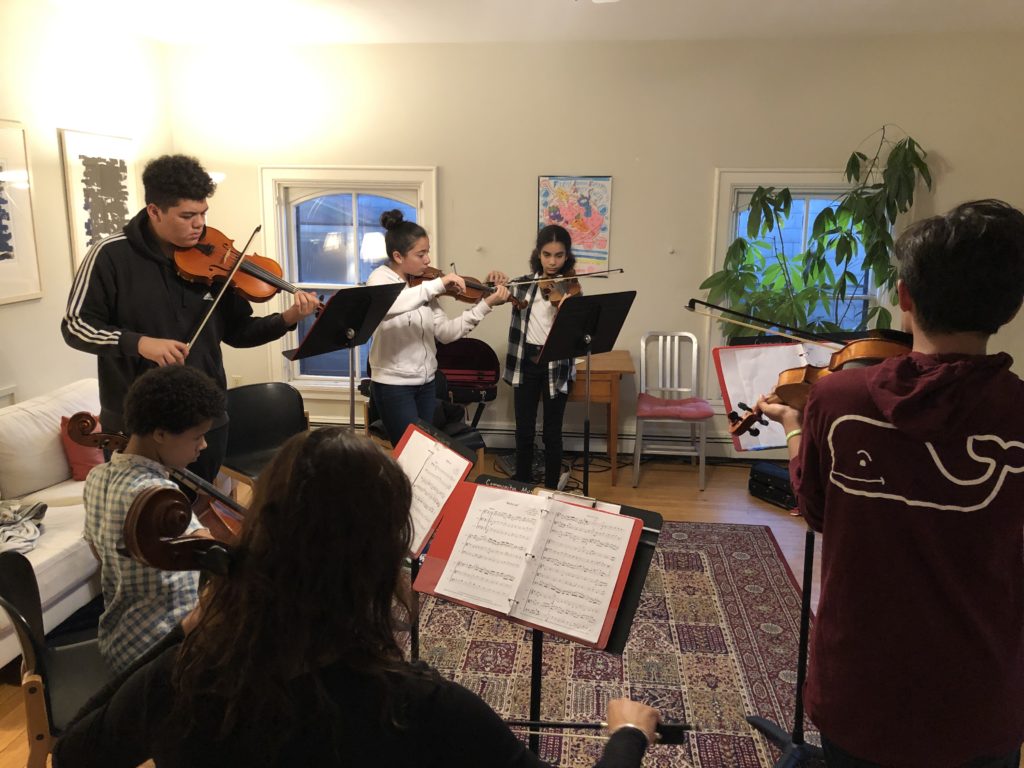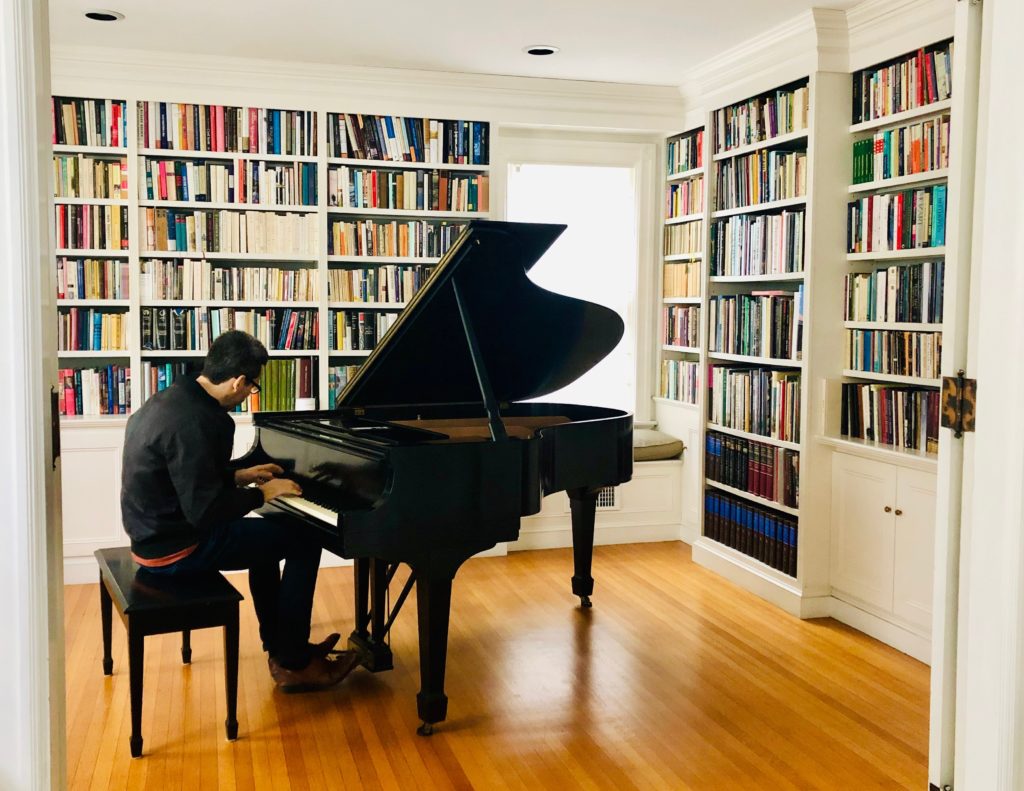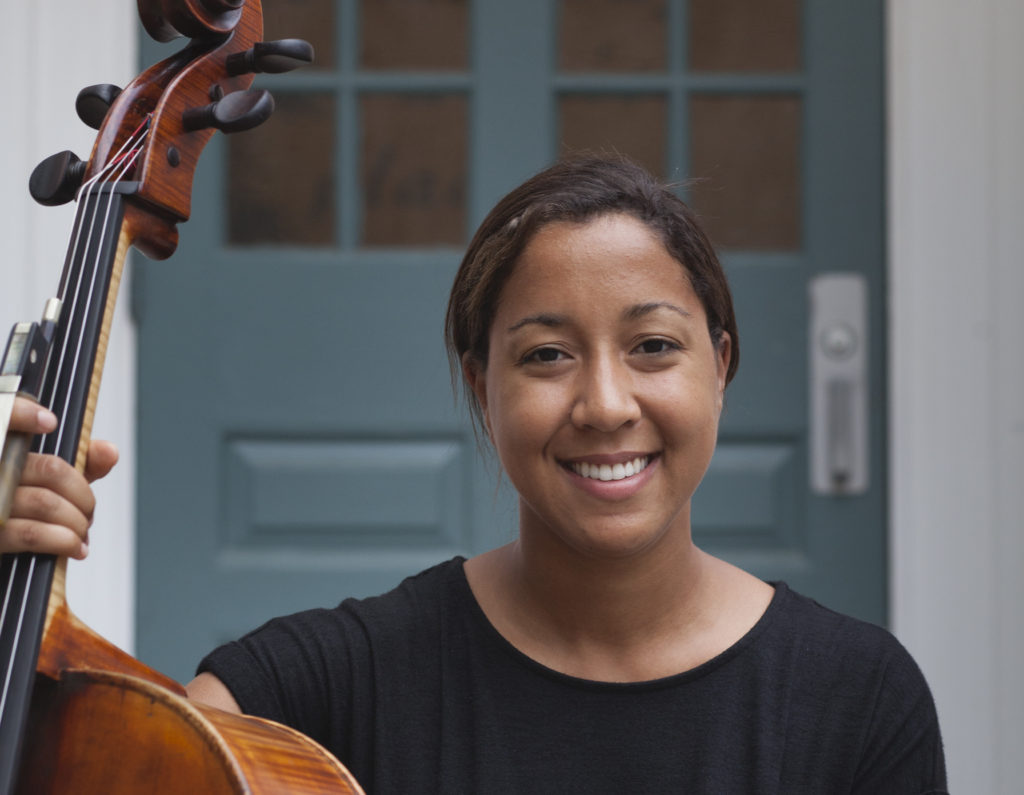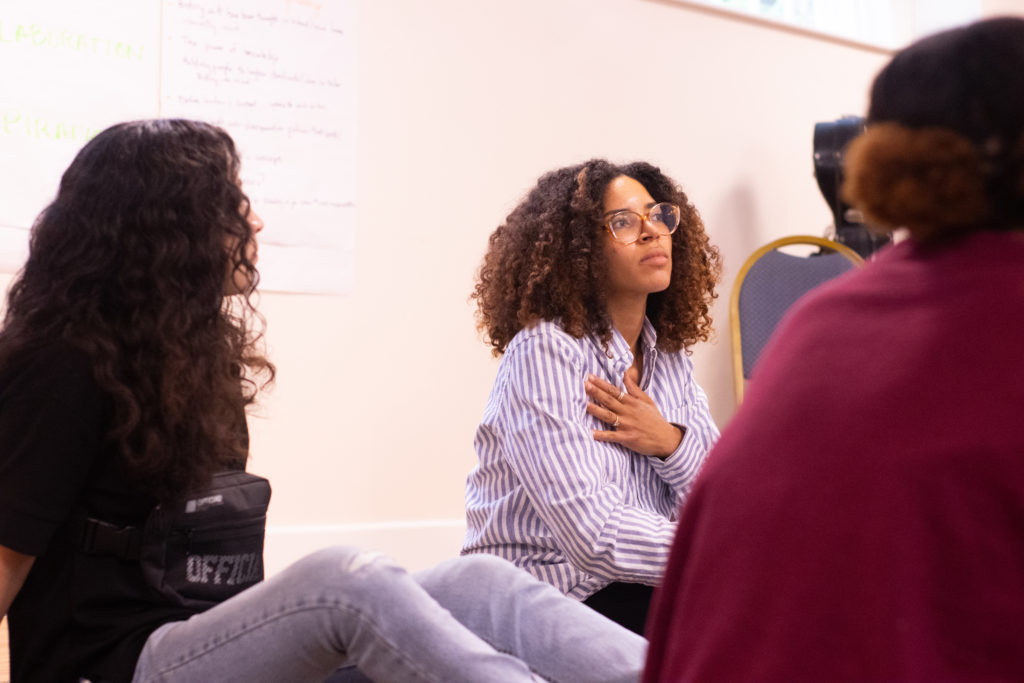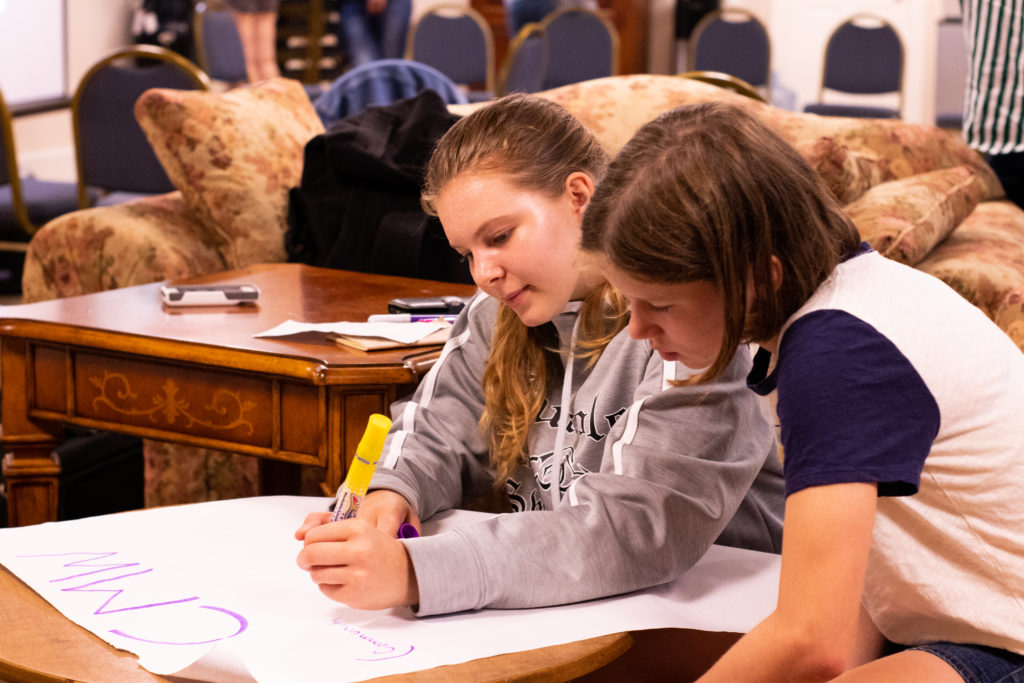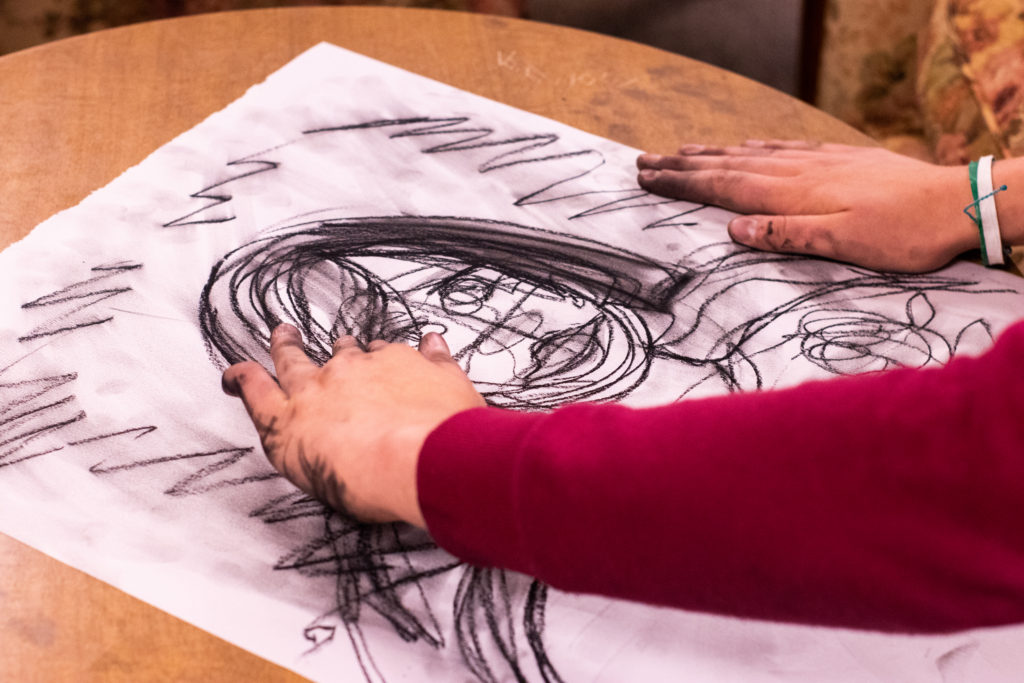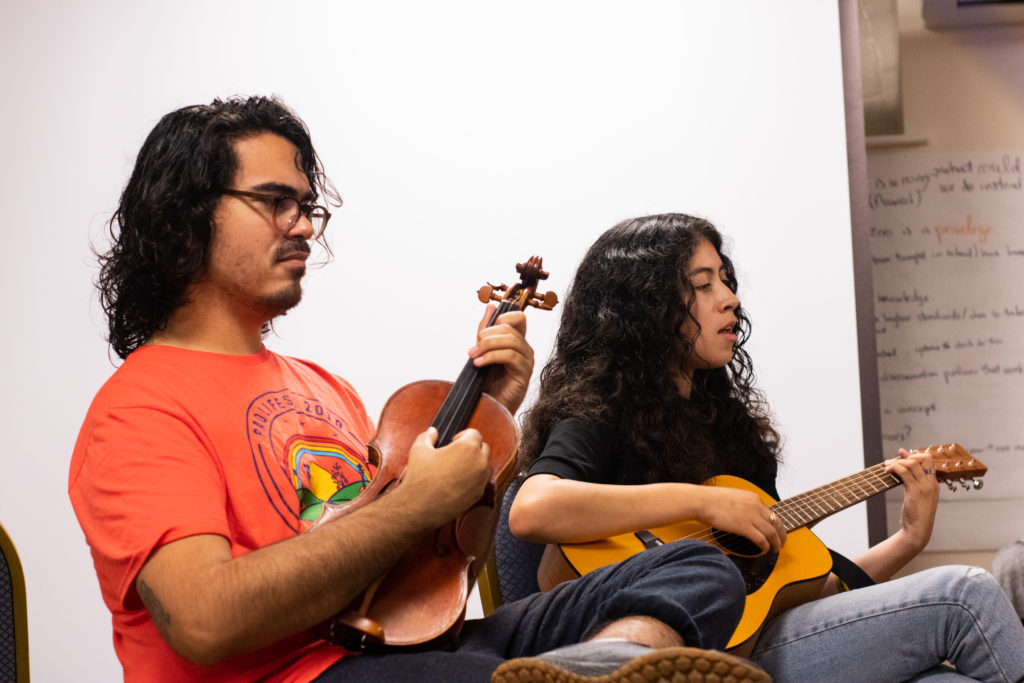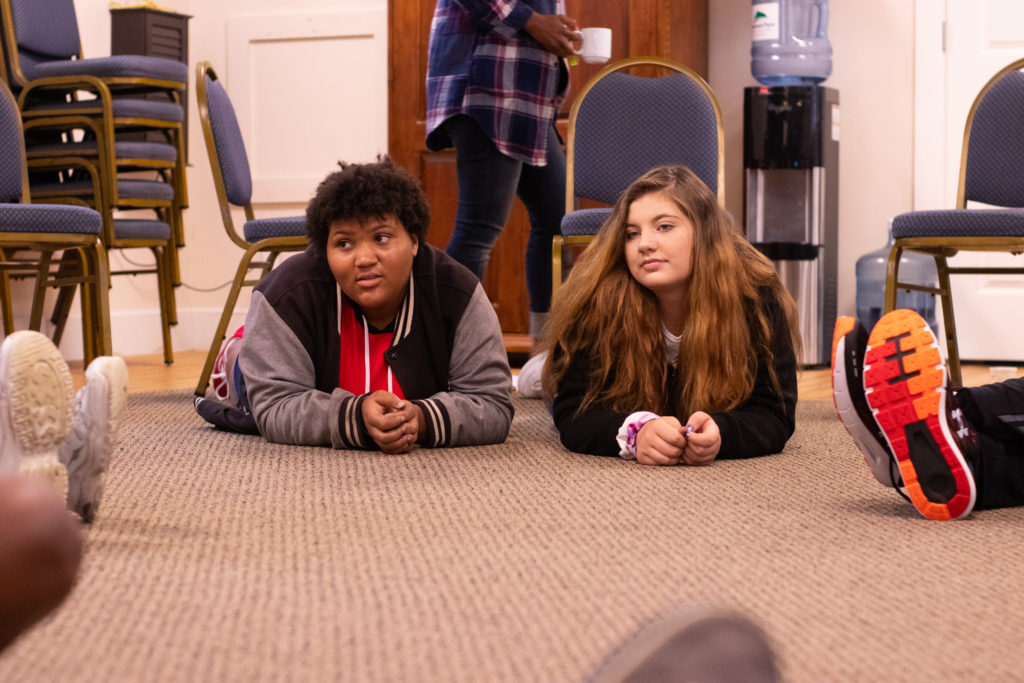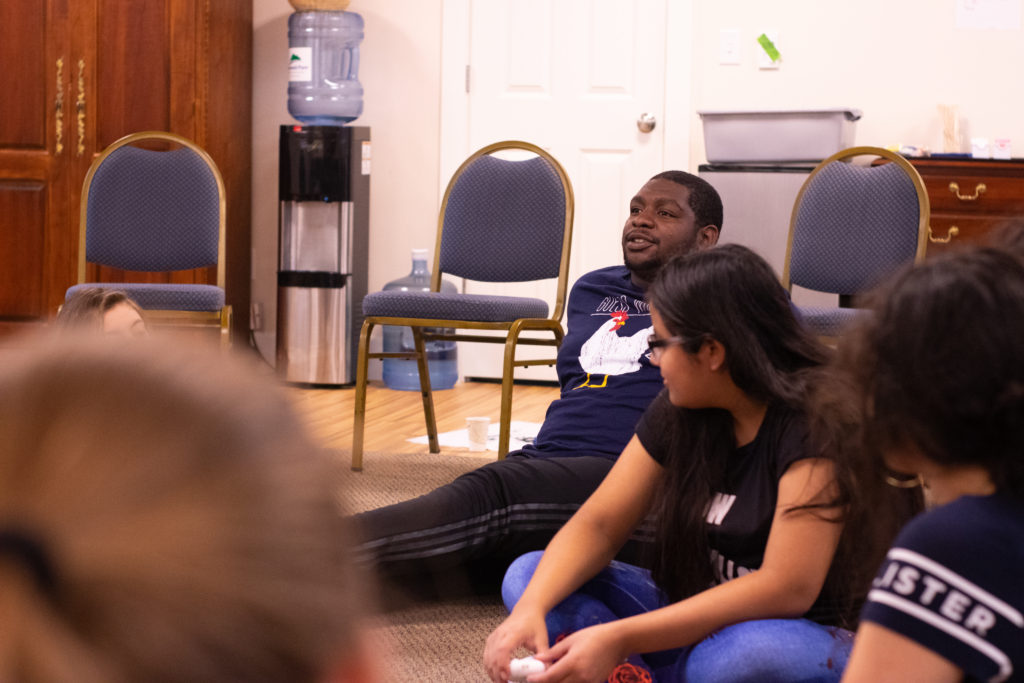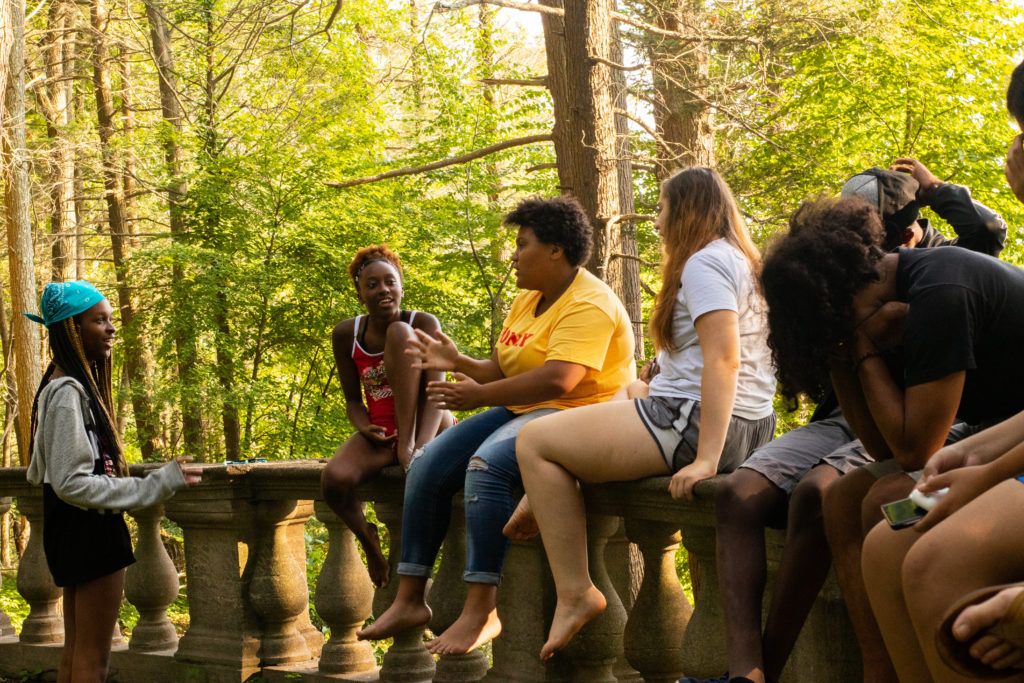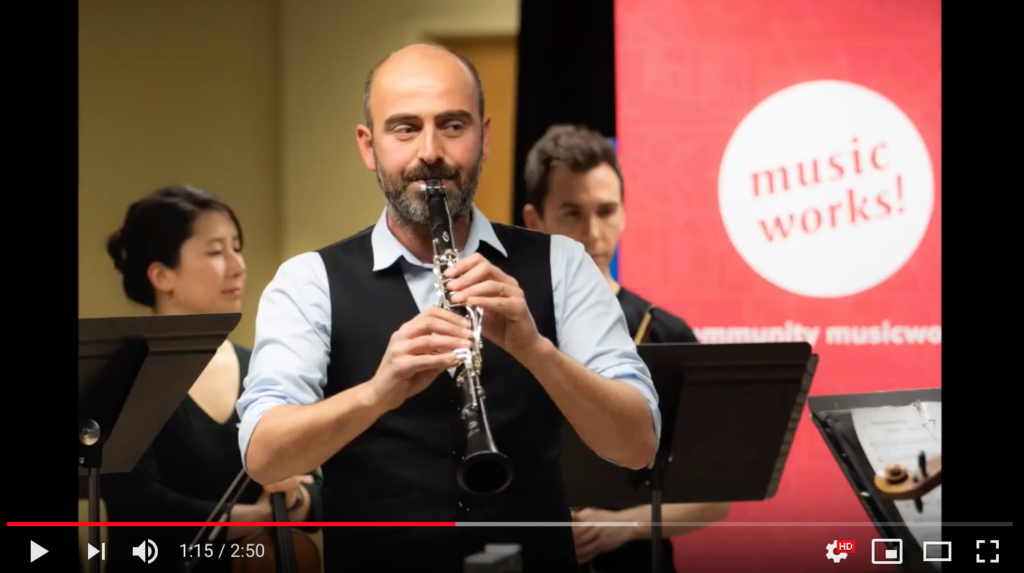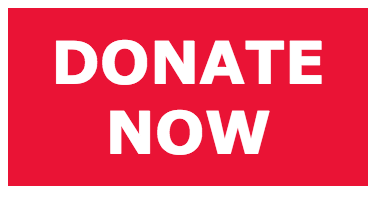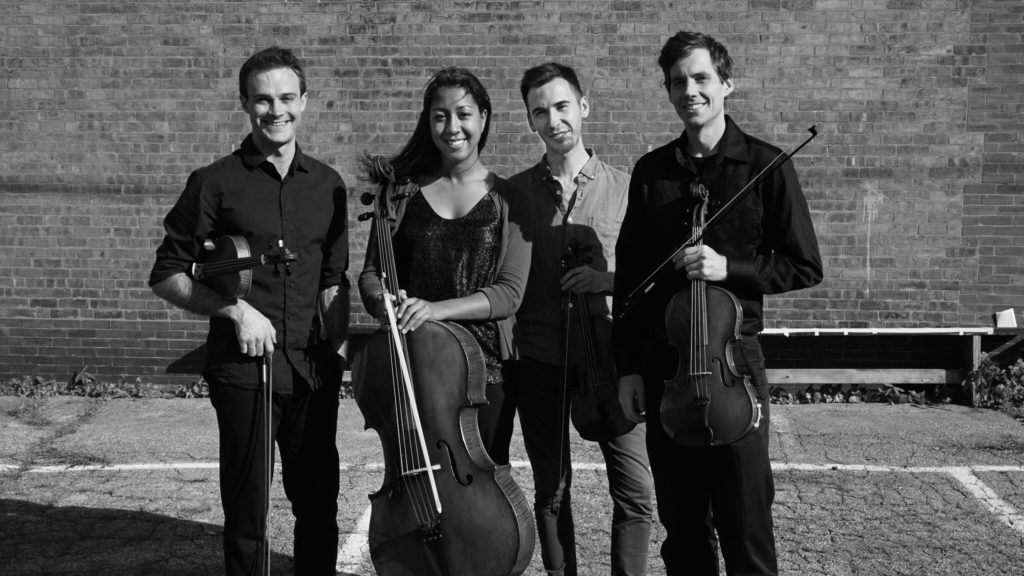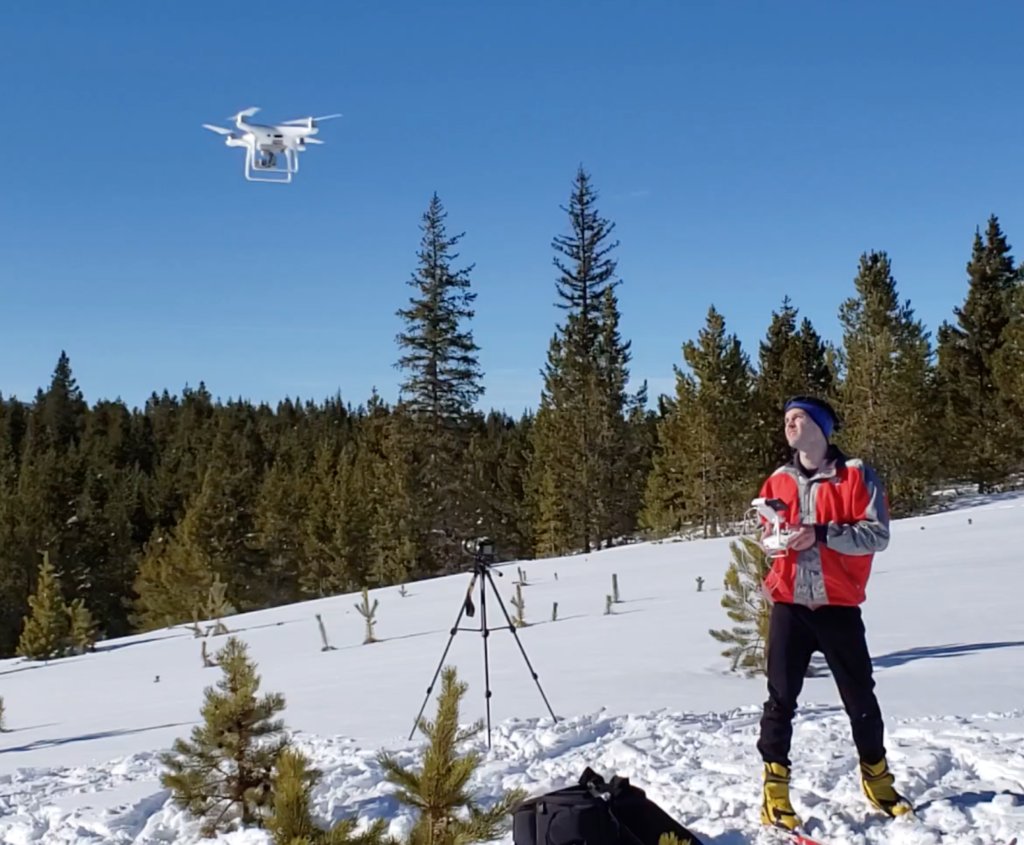
Marconi Hernandez was in the original class of CMW students and now serves as Vice President of the Board. Sebastian Ruth talks with Marconi about the early days, his return to CMW, and his passion for facilitating inspirational experiences for the next generation of young musicians.
Sebastian Ruth: We met when CMW was in its first year, and I was exploring partnerships with different community organizations to get CMW programs off the ground. I had just started talking to CItyArts about what I was trying to do. Eventually, we worked out that they would publicize the violin program in their course offerings, but also let it be known that it was CMW, although at the time, we called it the South Providence Community Music Program. How did your mom decide to enroll you and your sister in CityArts, and do you remember how you wound up in the violin program?
Marconi Hernandez: My mom had somewhat of a connection to CityArts because of church. At St. Michael’s, one of the nuns there was part of the CityArts program.
SR: Sister Ann Keefe, right? She was actually the founder of CityArts.
MH: Yes, Sister Ann, who has since unfortunately passed. At the time, my family was very involved in the church. My mom needed something for my sister and me to do after school, and she worked right across the street from CityArts. But it was actually my idea that I wanted to get into your program, and my mom made my sister come along for the ride.
SR: Do you remember why you decided to opt in?
MH: I always enjoyed playing an instrument, because prior to the violin, and later viola, I was playing the flute at school. But because it was a school program, they were having their ups and downs, so there was no real stability there. I stuck to sports, because that was way more stable than the music programs. So the violin program piqued my interest as a way of continuing to play music.

SR: What memories do you have from CMW in the very first years?
MH: One of the biggest things that stuck with me was just how much fun we had. We always took things seriously, but we still had fun doing it. You mentioned the workshops. One that I will always remember was when we had a clown come in. People dressed up like clowns, just clowning around. I will always remember that.
SR: Something important that we followed back then was the idea that there shouldn’t be a sense of formality around workshops. It was not curricular or linear. So, if it’s a circus school or if it’s string players coming to play Ferdinand the Bull or a breakdance teacher, we’re going to try all of these different things, and whoever leads the workshop should just have young people feel that it’s about connecting with something inspiring.
MH: It truly gives you a good idea of the arts in general. Art doesn’t always have to be music or painting; you could say that art is a clown making you laugh. If that is inspires someone to continue in the arts in whatever fashion, then you’ve done a good job. I also remember some of the retreat stuff we did as a way to bond in the early days.
SR: I remember the very first overnight retreat we did. We had a colleague at the time who said, “Are you sure you know what you’re doing? You’re responsible for all these teenagers!” And I thought ‘it will be great, no problem!’ But that evening, I spent half the night sitting in the hallway, because you all kept coming out and trying to sneak out. Every 10 minutes, you would open the door to see if I was still there, and I kept saying, “Please! Go to sleep.” [laughs] I think about this incident because of the specialness and spirit of the early years, when we were all figuring it out together.
MH: Exactly. Looking back, we were off on this ride, and we didn’t know where it was going, but we had a good time while we were doing it. And over time, we became a family, and started to rely on each other.
Some other things that will always be embedded in my memory are the regular day-to-day stuff, like the practices that we had once a week and the times when you would chastise my sister and me for not practicing that week. [laughs] The fun that we had and the conversations from those practices have now essentially manifested in initiatives and values within CMW. There are a lot of positive memories when it comes to CMW.
SR: Do you remember why you switched to viola?
MH: I think it was because you played it, so I was like ‘hey, let’s give that a shot’. At the time remember they weren’t any other viola students. So it was kind of a way of expanding my horizons as well as just doing something different than everybody else.
SR: You’ve always liked that, doing something a little different from everybody else.
MH: Yeah, you know, it’s more fun that way.
SR: Let’s go on to the college piece. I remember that fall you and I were talking a lot about the college application process and at a certain point, we just didn’t pick up the viola for three or four weeks in a row because we spent your lesson time going over college essays.
MH: At the time I would have been the first person in the family to go to college so it’s not like that experience is ingrained in my family. When you go to a public school there’s only so much the school is going to do. I do remember spending a lot of time going over all that stuff because it’s a big step. It’s a very scary moment to go through and I do appreciate the support you provided. And it’s nice to hear that support is now top of mind with CMW kids who are graduating.
SR: I remember feeling that it was really urgent to devote our energy that way because it didn’t sound like you were getting enough support from college advisors at school. Shortly after you went through that experience Simon Moore started this organization College Visions, trying to support first generation low-income kids to navigate the college process. At that time he was charging the nonprofit a certain amount per high school junior to participate and we decided to raise that money because it is so important.
MH: It’s crazy to think that was, what? 15 years ago? I had a great experience when I was at University of Bridgeport. I was doing the pre-med track but then my mom got sick. So, I came back to Rhode Island and I was living at home, taking care of her, with my sister helping out. It took several years for my mom to get back to a point where she could rejoin the workforce.
Because of that, I needed to get a job that would help me financially support the situation. I got a call from a friend saying ‘Hey, you want this job? You can start Monday in Human Resources for CVS.’ If you were to ask me when I started the job if I ever pictured myself still at CVS 12 years later, I’d be like ‘you are out of your mind.’
But after I started, I was able to leverage some of the math that I learned in high school and college. A lot of my work is analysis and forecasting and working with numbers as well as IT stuff, and has engaged me to the point where I’m managing an entire team. The work has shifted, but it’s also become more involved and more impactful, which is something I appreciate.
SR: Before you came back to the board you would show up at CMW events: the Sonata series, the Fantasia con Guayaba Habanera performance at John Hope. And then you mentioned recently you’ve gone back to hear the Boston Philharmonic. How what has it been for you to keep tabs on CMW over the years and go to other classical music concerts?
MH: I’ve always kept CMW in the back of my mind. Sometimes because of everything else that I have going on, scheduling-wise it was just difficult to make events but there were times when I wanted to go see something and I’d make an effort to make sure that I’m there to see it. When it comes to outside of CMW, it goes back to “I enjoy it,” right? It’s nice to go to see people who are that talented performing something they’re very passionate about. That passion comes out through the music, and it is a beautiful thing to hear.
When I travel, I sometimes like to go out of my way to see if there are any performances that I could go to. One of the concerts that I will always remember was in St. Louis a couple of years ago: it was the weirdest, most experimental music I had ever heard in my life. I loved every minute of it.
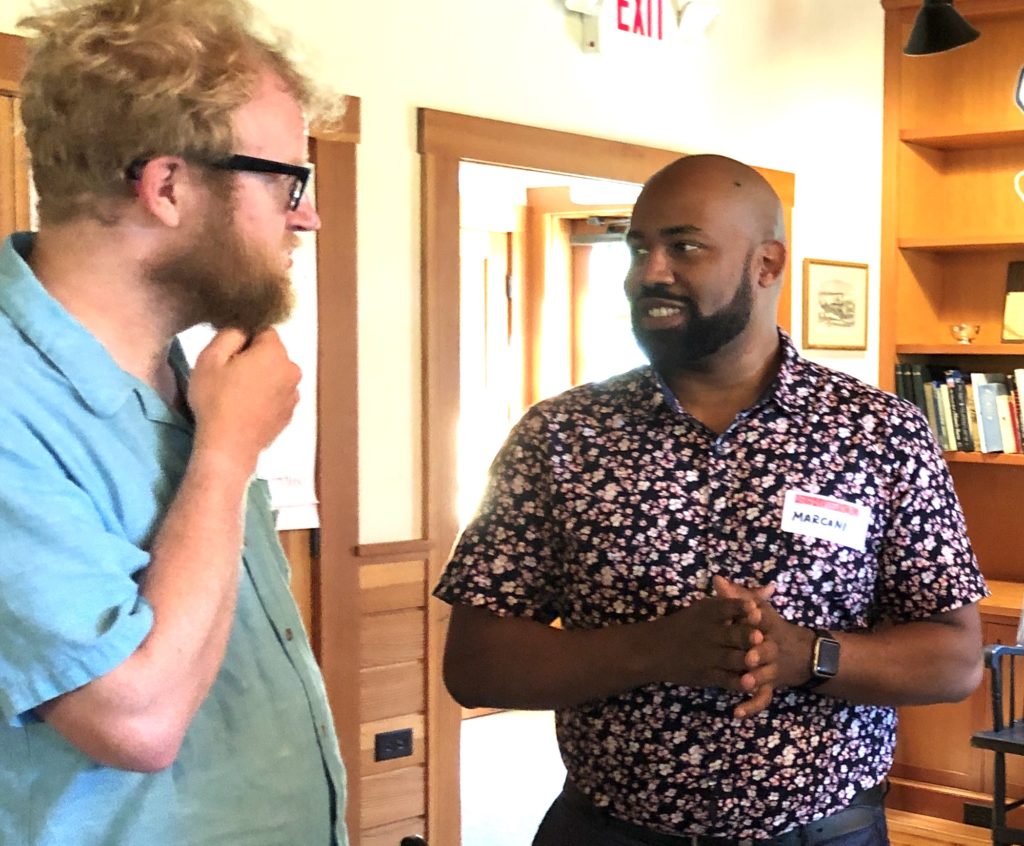
SR: We invited you to come back and join the Board. Why did that feel like the right thing for you to do?
MH: I felt like it was the right thing to do because this organization is very near and dear to my heart. It was a very big inspiration for me, and it changed a lot in my life. Being able to come back to the Board and facilitate that for the next generation is something that really speaks to me because I know that the child that you’re teaching every week will have a similar, if not much better, experience based on the work that we do on the Board.
It also keeps me more tied to the organization. Because of it, I’m able to go to more performances and do more with the organization. It allows me to brag more about CMW. It’s one thing to talk to people about it: “Hey, check it out,” but as being part of the board, it allows me to be even more engaged in those conversations and to say, “Hey, if you want to support it, here’s what you can do.”
SR: You’ve been on the Board now for two years. What do you think now that you’re on this side of it? What do you think the challenges are for CMW and what things do you think need attention?
MH: I think one of the challenges is getting the community to know we exist. When you look at it, people do know Community MusicWorks because if they didn’t, then this organization wouldn’t be 23 years old, right? However, if we look at the broader community, are they aware of Community MusicWorks? It’s very important that the community knows who we are, especially the local community and the broader community knows that “Hey, that’s Community MusicWorks. This is what they do. I may not actively participate or engage with the organization, but I know they’re there.”
When it comes to the organization as a whole, a positive thing is what CMW stands for and what it does. It may not necessarily be a big impact on the broader community but to the community that is Community MusicWorks, it has a tremendous impact.
SR: It goes back to the broad versus deep conversation we’ve had here over the years. I remember Liz Hollander when she was the Board chair asked that question a lot, “Is it depth, or is it breadth?” And we continue to choose depth. We’re trying to go deeper with the students, families, audience members, musicians who are deeply involved.
MH: That’s really valuable.
SR: Yeah, I think in some ways, it’s never really been the agenda to do broad and wide. The agenda has always been about the kind of relationships that you and I had and have. Actually, music facilitates these deep, long-lasting bonds between human beings, and in some cases across differences. I didn’t grow up in the same place and with the same background, but music facilitates those deep connections.
MH: And that’s one thing I really like about the organization. It brings people together from all walks of life because there are certain individuals that these students would never ever get a chance to have a conversation with, let alone engage with them. But because the organization has so many connections to so many different people, it gives them that opportunity. Going back to the workshops, that’s a good example of how I didn’t know you could make a living and be happy and live a great life doing whatever that may be…
SR: Like being a clown.
MH: [Laughs] Right. Like being a clown.
Because of the longevity that I have with the organization I’m able to look back and reminisce about the early days, and one thing that I love seeing is how much CMW has grown over time and how much it’s matured. And even with that maturity you still have those same values, if not stronger, than back when the organization started. It’s seeing that and seeing the impact that it has, and always knowing that it’s a collaborative effort across the board. No matter what, this is a collaborative effort.
One of the things, too, that I’ve learned through Community MusicWorks is that you should always go into situations with your best intentions, to try not to be cynical about things. Because when you look at some communities, that’s what they instill in people, those types of values of not trusting individuals and always doing it for yourself. So being part of this community that was Community MusicWorks gave me a different side of it. That’s one reason why I say it changed my life and how I view things and how I handle situations. It’s just how I live my life.
SR: Can you give some advice to our young students?
MH: For the students, it’s: Put in the work and enjoy it. That’s kind of what it comes down to. Just truly enjoy it, because if you enjoy what you’re doing, it frees you up to build those relationships because now you’re all having a good time. You’re not stressed about it.
There’s always going to be another practice. You’re always going to miss that note when you’re performing in front of people. It happens. So Sebastian, you just smiled, so it obviously happens to you, too. There’s no need to stress over every single thing; just enjoy the moment. When you look back on it, you can look at it fondly if you do.
Marconi Hernandez is a CMW alum from the first class of CMW students and the Vice President of the CMW Board. He was a student board member and was the first CMW student to go to Apple Hill. Marconi attended University of Bridgeport before starting work at CVS Health corporate headquarters, where he is an Advisor, HRSS Absence Management. He has continued to attend CMW performances and stays connected to the CMW community.
